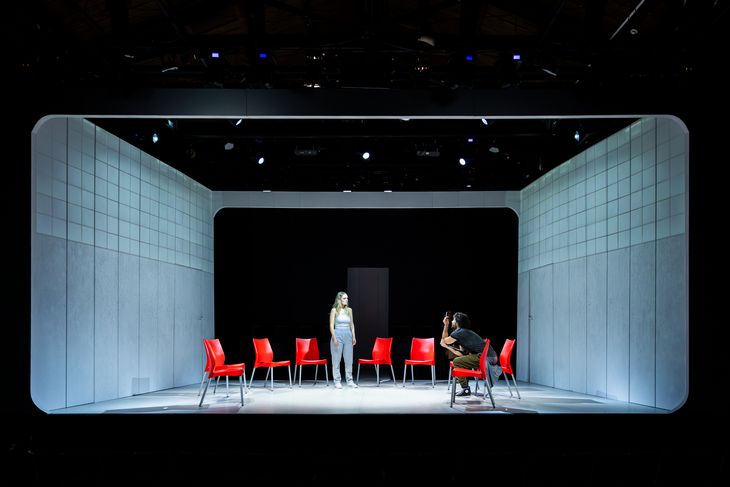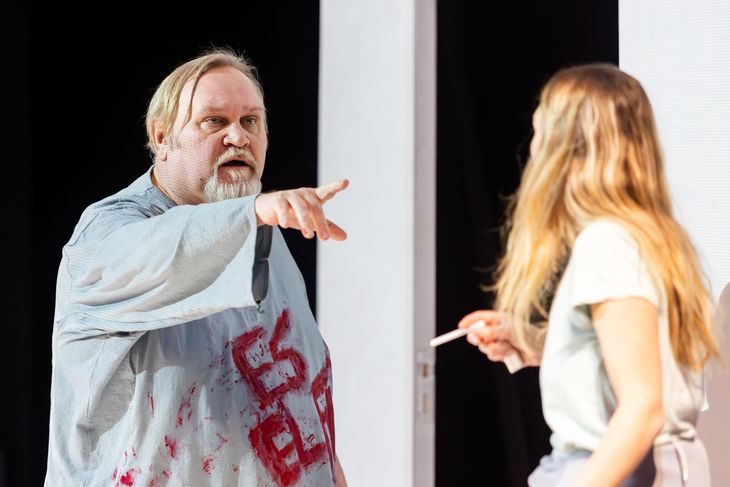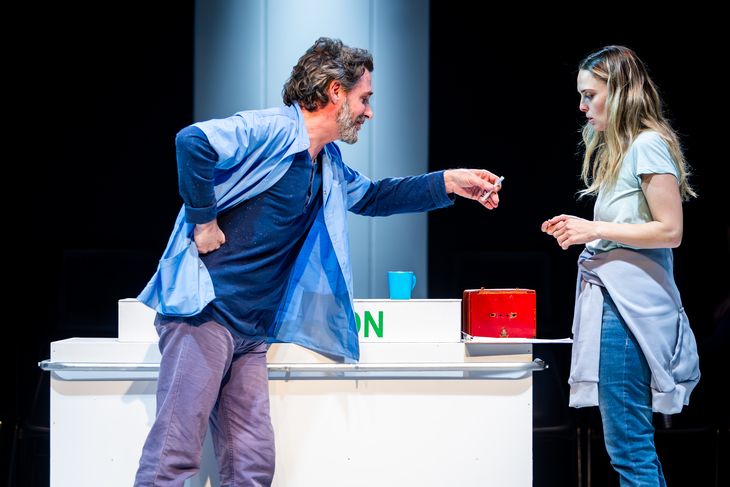“Anyone who makes art today is revolutionary. “Doing theater today is resistance and struggle, against so much beating of culture,” says Florencia Otero, protagonist of “People, places, things”, by the British author Duncan Macmillan which is the first premiere of the year at the Sarmiento Theater of the CTBA.
In co-production between the official theater and the production company Club Media, it is the first version in Spanish of the work that was successful in New York and the United Kingdom. It addresses the topic of addictions and self-medication while establishing parallels between rehabilitation and the processes developed in the theatrical field.
It is directed by Julio Panno and performances by Beatriz Spelzini, Carlos Kaspar, Nelson Rueda, Coni Marino, Gabriel Rovito, Santiago Racca, María Latzina, Estefanía D´Anna, Roco Sáenz, Fiore Provenzano and Marina Artigas. We talk with Knoll.
Journalist: What attracted you to this text and the character?
Florencia Otero: I was looking for powerful, moving material that would allow me to go through many stages. This work came to me, I saw a trailer and I was wondering how to bring a show from abroad, the payment of rights and everything that entails. When I chose it I realized that it was fantastic material.
Untitled-247.jpg
Florencia Otero with Nelson Rueda.
Q: To what do you attribute the success of the work abroad?
FO: It depends on what we consider success but the work is empathetic anywhere in the world, it touches on issues that cross us, they are existential topics such as our place in the world, our beliefs, faith, addictions and the art that touches us as humanity.
Q: What disorders does the work describe and what other evils of the time are at stake?
FO: Behavioral disorders. My character, Emma, does not believe that addictions are a disease but rather she points out that they are a consequence of the problems in the world. She feels that self-medicating is the only way to survive a world that is broken. Numbing the pain is the only way to continue, otherwise you have to have enormous moral ambivalence to come across terrible things around the corner. I’m not talking about huge catastrophes but the fact of going to the corner and seeing someone sleeping on the street, that’s already overwhelming, that’s what my character says.
Untitled-263.jpg

“People, places and things” has an impressive scenographic display.
Q: What is this proposal like in the official theater and the combination with private production?
FO: In the official there are always proposals for large production and in this case we have two teams in parallel dealing with different things, with division of tasks. It is a complex moment in which being able to have a production company that is committed to these materials in these times is fantastic. San Martín always does it but having private parties like Clubmedia join in adds a lot.
Q: What is it like to do theater today in this context?
FO: The culture is highly questioned and beaten, so doing theater is resistance. It’s fight. Anyone who today writes a song, paints a canvas, puts on a play, dances or makes a film is revolutionary. It fills me with hope to continue telling stories that allow us to linger for a while, stop to understand the world a little more. It is an act of love.
Untitled-261.jpg

Otero with Carlos Kaspar.
Source: Ambito
I am an author and journalist who has worked in the entertainment industry for over a decade. I currently work as a news editor at a major news website, and my focus is on covering the latest trends in entertainment. I also write occasional pieces for other outlets, and have authored two books about the entertainment industry.




